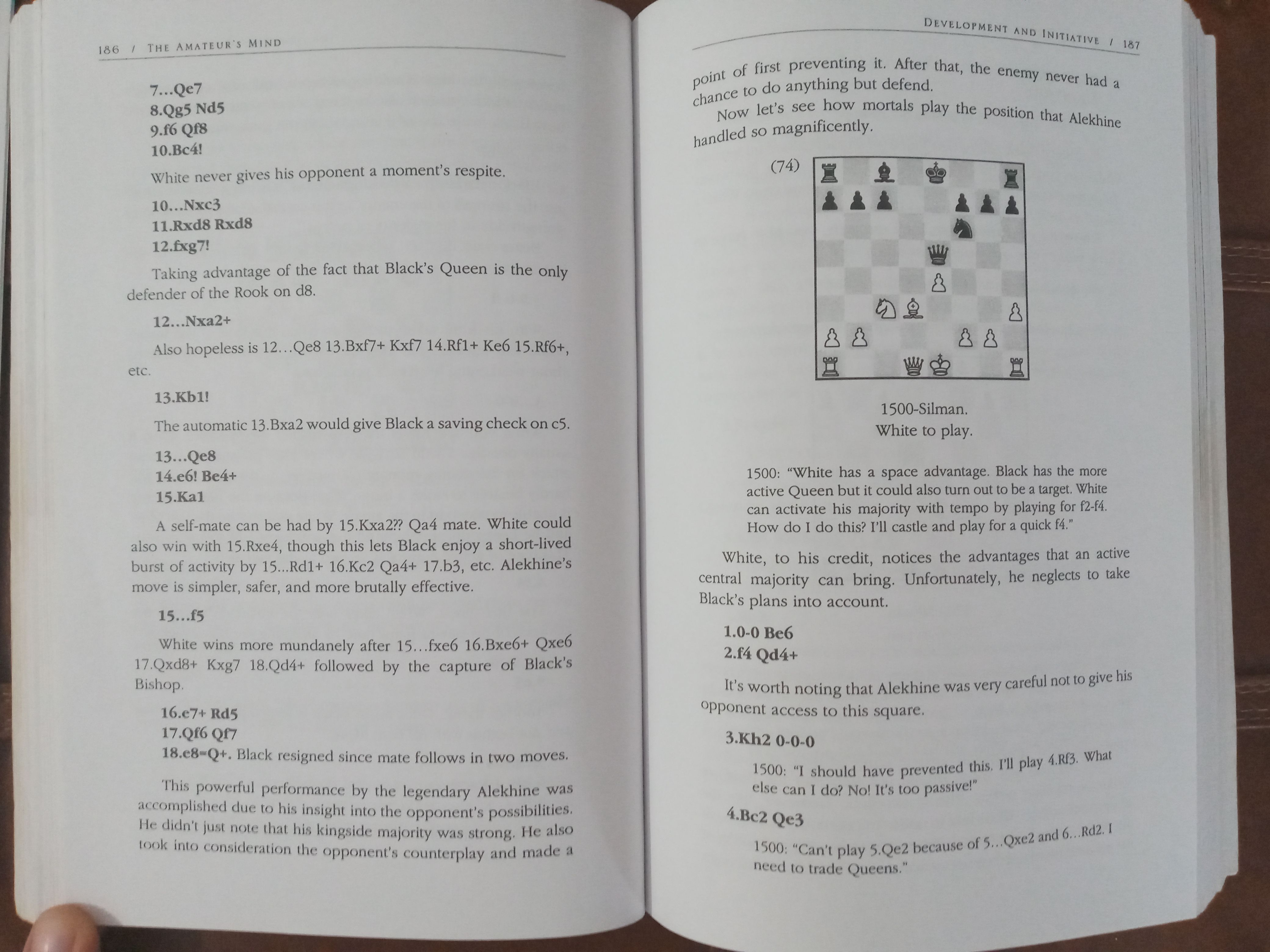Hi! I have both the books mentioned. Enjoy them both.
The main difference between these two books has to be the size! The Amateur's Mind is a fair bit smaller and covers less material. I actually got through this entire book, while Reassess Your Chess I've tried a couple times, but the size was just too much.
Because they are both Silman books, they both introduce his strategy to learning through imbalances. Amateur's Mind goes into 7 imbalances while Reassess covers 10.
Silman talks about how amateurs view positions and their thinking process quite a bit in both books, but perhaps more so in the one titled so! It is 426 pgs to work through. Reassess Your Chess is almost 700 pgs and each page contains much more.
I think you made the right choice, especially if not ready to commit to a book the size of the bible Lol
Amateur's Mind:

Reassess Your Chess












I've just ordered this book, upon a suggestion. I hope it will be useful for me. Anyone studied this book? I was going to buy "How to Reassess Your Chess, 4th Edition" but someone warned me via PMs and i changed it to this.
The Amateur's Mind: Turning Chess Misconceptions Into Chess Mastery Paperback – October 1, 1999
https://www.amazon.com/Amateurs-Mind-Turning-Misconceptions-Mastery/dp/1890085022